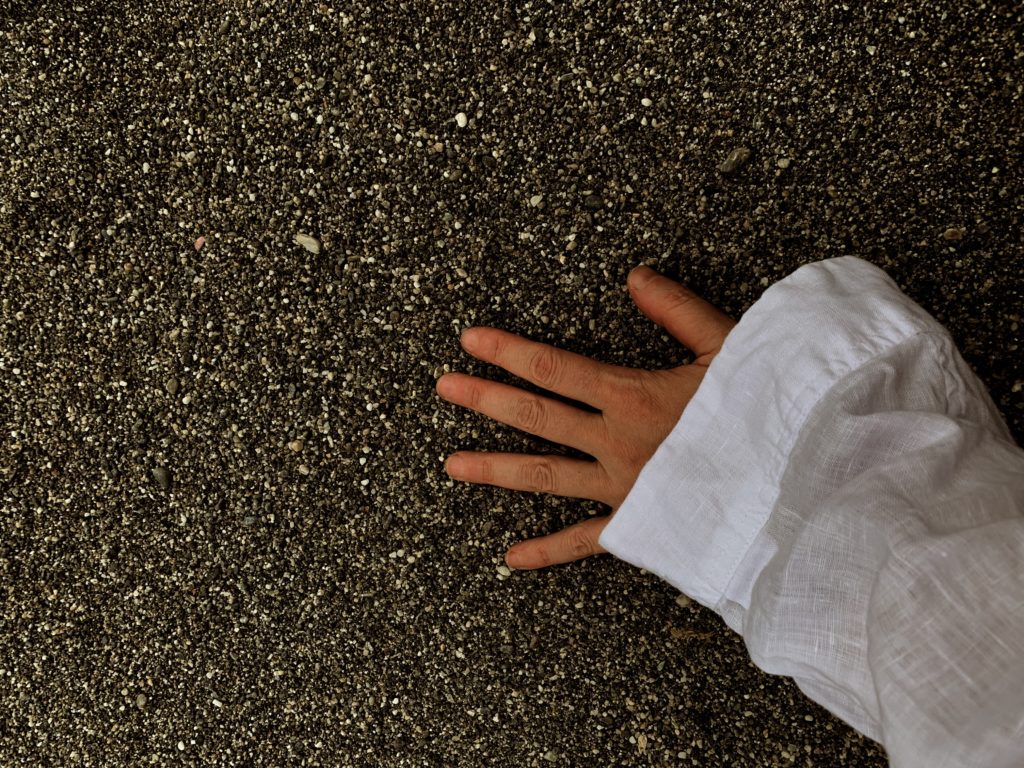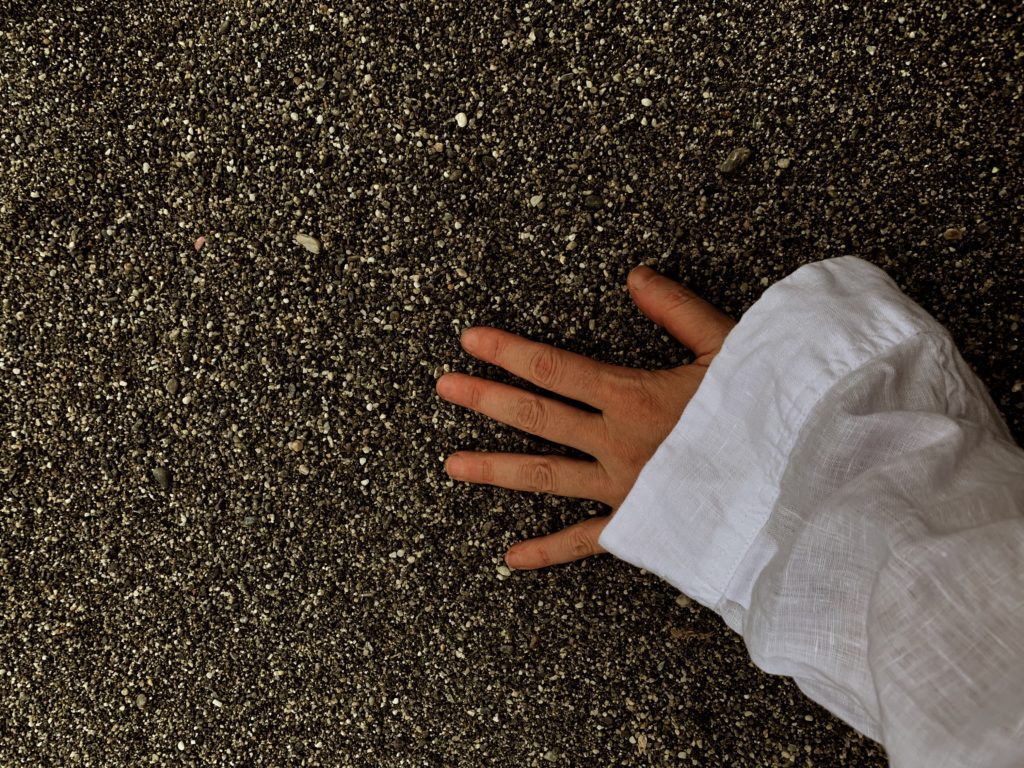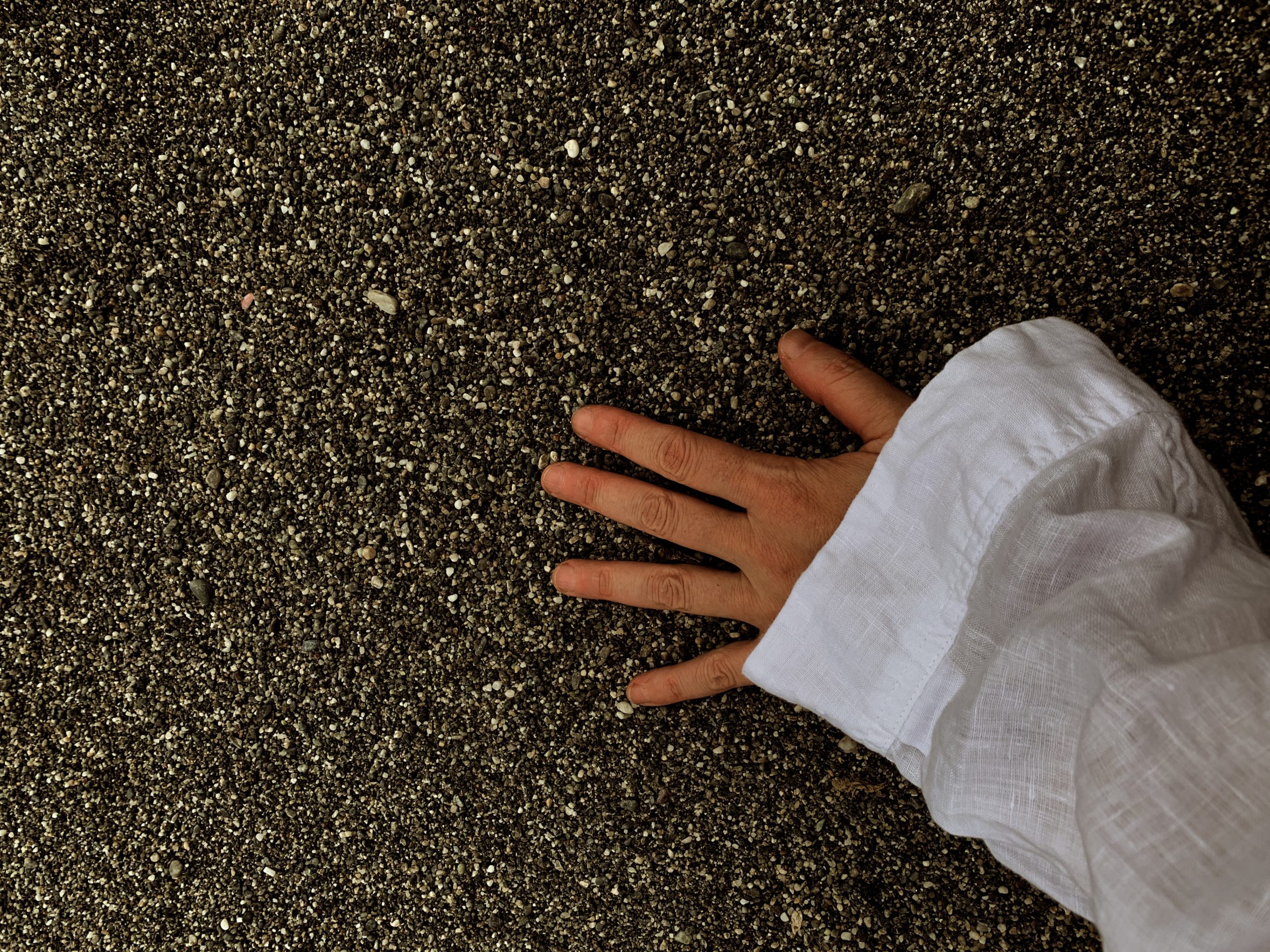by Kaori Shoji
Japan Subculture Research Center is proud to present the latest addition to a series of short stories, by our resident book reviewer and social commentator, Kaori Shoji, on the often tragically mismatched marriages of foreign men and Japanese women–The Amazing Japanese Wife. If you see echoes of someone you know or yourself in this story, be rest assured that you’re a cliche—but take solace in the fact that misery is universal. This new story is apocryphal in the sense that the protagonist is unmarried–but seeking to be married.

One
In high school, Kimie read a novel about a woman who lived in a shack that was sinking into a sand pit. One day, sheer chance leads a man–an outsider–to wander into the woman’s shack. Initially, she’s kind and welcoming but she takes steps to ensure that the man can’t leave. Soon she sets him to work shoveling the ever-present sand out of her door, which she herself has been doing everyday for years. Otherwise, the sand will claim the shack completely and the woman will have no place to live.
At the time, Kimie was sixteen and was reveling in the power of her sexuality. She didn’t need to trap a man in the sand to get him to do anything–most of them were putty in the hands of a girl in a school uniform. When she stood on the platform of the train station she could feel the particles in the air around her change and shift, as men craned their necks to get a better look at the back of her knees and her neck and her long, perfect hair. A man in a neat, expensive-looking suit once gazed at her intently and pressed a 10,000 yen bill in her hand. “This is so you can kiss me later,” he whispered, before striding rapidly away.
For all that, the woman in the shack that was sinking into the sand, haunted Kimie. As she grew older it seemed she was turning into this woman, shoveling out sand alongside the man she had trapped. She knew exactly how this woman felt, and how earnestly she needed the man in her sand blown life. After she hit her forties, Kimie identified more with the man. She could picture him, desperately clawing at the sand, eyes darting wildly as he searched for a way to escape.
Two
Kimie had turned 47, and was living with her mother in the same house she had lived in since childhood.
Three weeks into the pandemic shut-down, Kimie felt her synapses fraying, and then unraveling. Her hair was falling out in chunks and her skin was clammy to the touch in some places, while in others it was dry and chilly. The soles of her feet had the texture of old, cracked rubber. She would get up in the morning, and too distracted to open the curtains, would immediately turn on the news, mentally preparing for the day’s dreary horrors as if they were a mere extension of her fitful nightmares.
“Kimi-chan, Kimi-chan!” After half an hour of staring at the screen, the calls of her mother from the kitchen downstairs, would alert her to the fact that she had procrastinated long enough. It was time to face her mother at the table, over coffee and toast with synthetic butter and cheap jam.
The sight of her mother, aged 77, instilled a sense of silent panic deep within Kimie’s soul. This is where I’m going, this is what I’ll look like. She knew such thoughts were vain and unworthy but she had decided long ago that it was okay to have them. Until five years ago when her father was still alive, Kimie could convince herself that she valued her parents because they brought her up and sacrificed much for this life of hers. In her youth, this life had seemed to be the most enticing item in the whole shop. She had pointed to it with her finger and it became hers, gift-wrapped and bow-tied. The bill had been sent round to her father, who paid without complaint. But now the sand was getting into the nooks and nannies and crevices of her pretty little life.
On good days, Kimie would tick off her milestones in her mind, if only to remind herself that she was special, and her life was, if not completely wonderful then surely presentable. A semester in a high school in Missouri, courtesy of a school-sponsored home stay program. She had called her father collect to ask for 500 extra dollars to spend on a prom dress, subsequently torn in three places by her geeky, fumbling boyfriend as he frantically groped her in his parents’ car. A year in Pennsylvania during university because she had insisted to her father that she needed to improve her English in order to land a good job. Her father had wired 800 dollars into her account every month so she could eat well, go to parties and well, improve her English. (Which she did! She scored 900 on TOEIC!) A trip to Italy and France as a graduation present. At the time, all these things made enormous sense to her, and besides, her mother had encouraged her every step of the way. “I want you to have the life that I could never have, Kimi-chan,” she intoned, the closest thing her mother ever came to a prayer. She would also say, “The world is so different from when I was young. I had no choices, no options, nothing but the life that was put in front of me.” This was her mother’s mantra, pulled out whenever she got into a fight with her husband or daughter, knowing it would make them feel guilty enough to shut up and back off.
Kimie had allowed herself to buy into the myth that her mother, comfortably ensconced in their house in a Tokyo suburb purchased with a 30-year mortgage, had been abused and victimized by the Japanese social system. By embracing that myth Kimie took it upon herself–the brilliant girl who had studied in the US, could speak English and got a job in a bank–to be happy and successful. This would compensate for her mother’s apparently miserable and downtrodden existence.
Kimie had believed she was doing the right thing, only to realize in middle age that she was trapped, a prisoner in the cell of her own bedroom.
Three
Kimie’s younger brother had always rebelled against their parents and left home at the same time he chose a university in the northern tip of Japan–as far away from Tokyo as he could get without going abroad. Relatives had pitied her brother, he chose a national university with low tuition and turned down their father’s offer of a loan so he could rent an apartment. Instead, Kimie’s brother Youki spent four years in a cramped, filthy college dorm. Occasionally, he called to let his family know he was all right. After graduation, he stopped by to say he had found a job at a mid-sized electronics manufacturer. Youki had none of the privileges Kimie had taken for granted but he gained the kind of strength and freedom she couldn’t even fathom. Now, Kimie found it hard to wrap her mind around the fact that her brother had his own house, a family, even a dog–an elegant Dalmatian named Sabu whom she had seen only once. Youki had left and never came back. She had been the cosseted, dutiful daughter who stayed, and stayed and stayed at home. “At least I have you, Kimi-chan,” her mother liked to say. “As long as you’re still here, I have nothing to complain about, really.”
Kimie felt as if her insides had dried out and her blood vessels were clogged with sand. Did the woman in the novel die in the end? Kimie couldn’t remember but neither could she recall when she had her last period.
“Kimi-chan, are you working today?” Her mother, chewing toast, tossed the question in the air and Kimie nodded with a small grunt. There was a Zoom conference at 3PM for which she planned to turn the camera off. Until then she could pretend to do some paperwork, answer some emails, make a few calls. How long would that take? Maybe a couple of hours. Even with the Zoom conference slotted in, there were still ten or more waking hours that had to be whiled away somehow, secluded in her prison cell. Putting her dishes in the sink for her mother to wash, Kimie plodded to the bathroom to brush her teeth and wash her face. She saw no reason to change out of her pajamas, it wasn’t like she was going anywhere.
Kimie didn’t like life under the pandemic. At times, the strain of being cooped up inside a small house with her mother felt intolerable. But she hated her pre-Covid life even more, with a ferociousness that had her contemplating suicide at least three nights a week.
In late 2019 Kimie had an epiphany: instead of dying she would get married! Marriage would at least, enable her to leave her mother and the wretched house. In January, she signed up with a ‘konkatsu (marriage agency),’ dutifully paying the 300,000 yen registration fee and answering each and every match-up question. She understood from the hour-long meeting with the agency’s ‘counselor’ that these days, it was quite common for women in their 40s and 50s to look for partners, but the road to an actual wedding could take longer than expected. The 300,000 yen fee would cover her match-ups for up to one year. “What happens when a year goes by and I’m still single?,” Kimie had asked and the counselor, intimidating with her glowing skin and sleek hair, had chirped that most women found someone within 6 months. “Our advice is: try them out. Most of our clients haven’t dated in awhile and they’re all a bit rusty. We find that when the woman takes the lead, everything tends to fall in place. So don’t say no until you’ve tried them out!”
After screening a half dozen applicants, Kimie settled on the 56 year old Yamanishi-san, whose portrait photo reminded her a little of her father when he was that age. Yamanishi-san’s texts were charming; he seemed to know how to strike just the right tone between elaborately polite and paternally friendly. They agreed to meet for lunch in a kaiseki restaurant (his choice) in the posh district of Ginza, where he had booked an alcove facing a Japanese garden. “I love gardens in the winter. They’re so calm and soothing,” he texted, and Kimie felt a little thrill of anticipation. It had been a long time since she had been courted, on any level, by a man. Maybe she really was about to get a ticket out of the sand shack–her private nickname for home.
Exactly 24 hours before the appointed time, she had her roots done at an expensive salon in Aoyama. Two weeks prior to that, she had bought a dress at a department store, along with a fresh pair of panty hose and brown leather pumps. On the day, she scrutinized herself in the mirror and decided she didn’t look a day over thirty-nine. Saying nothing to her mother, Kimie went to the restaurant with as little anxiety as she could manage. If this worked out, she would break the news to her mother gently, and suggest moving to a house in the immediate vicinity so they could visit often.
Yamanishi-san turned out to be a bit heavier than his photo, and with noticeably less hair but Kimie was willing to overlook these minor flaws. What was much more jarring, was the rift between his digital texts and his real life persona. Yamanishi-san didn’t even look at the garden but kept his gaze firmly on Kimie’s chest, as if he were a chef contemplating the char marks on a grilled steak. “You have a good body for a woman of your age,” he said. “Have you done much sports in school? I like a woman with good muscle tone.” Kimie smiled and said no, not really, she had been too busy studying English.
“Ah, yes! I read that in your resume. You’re not some idiotic female with zero skills, you’ve been out in the world and you can speak English! My mother would like that. She used to be a teacher in her day. She likes women with knowledge and work experience. She can’t stand dumb girls.”
The conversation went on in this vein and Kimie could hardly bring herself to sample the meal, made up of exquisite morsels of food artistically displayed on polished lacquerware. All she wanted to do now was go home, and slip into bed with her phone. She stopped listening to Yamanishi-san altogether and thought about Spotify. She really should update her playlists.
Suddenly, in the middle of wresting a thin piece of radish from a tiny portion of soup, Yamanishi-san fixed her with an intense stare and said, “Okay, I seriously have to ask you this question if we are going to take this relationship any further. What color is your that?”
Kimie could feel her cheeks tingle, and then burn, and could only mimic the last word in his question. “That?” she blurted, like a fool, she thought. Yamanishi-san nodded vigorously and said, “Yes, your that. You know, I can almost tolerate black nipples though I would much prefer them to be a lighter color. But a woman’s, you know, that–should never be dark. If we are to have sex, I don’t think I can perform very well if your that is a dark color.”
After a full ten seconds of silence in which Kimie sat there, her face turned desperately to the winter garden which struck her as being dull and ugly, Yamanishi san said in a gentler tone, “I’m sorry to have to ask you. But this is…not love, it’s not dating, don’t you see? This is an arrangement preceding marriage. I think that you are a smart, modern woman and maybe we could come to an understanding, the two of us. But neither of us is young, and there’s no time for beating around the bush. I have my priorities and I am being honest about them. Won’t you give me an answer?”
“I don’t know. I don’t usually look.” With that, Kimie stood up, clutching her handbag, and walked clumsily to the reception area where she asked for her coat. As soon as she was out of the restaurant, she grabbed her phone and blocked Yamanishi-san’s number after deleting all his texts.
Finis
Kimie’s thoughts often wandered back to that lunch, but the memories were not of Yamanishi-san. Indeed, within hours of that experience he had felt like a figment of her imagination, spawned as the result of the meeting with the chirping counselor and her stupid advice.
What Kimie recalls is how, as soon as she had gotten home and climbed the staircase to her room, she stripped off her coat and dress and peeled off her pantyhose. She took a mirror from her make-up drawer and held it close to her vagina. For several seconds, she had to struggle to see, but when she got a good enough view, she let out a sigh of relief. Her ‘that’ wasn’t black. In fact, the color could even be described as being on the light side. “If we are to have sex,” she whispered to herself. Then she had put the mirror away, pulled up her panties and got into bed. She could hear her mother calling her name from the kitchen but she shut her eyes tight and willed herself not to hear. The sand was seeping into her room, gathering in mounds all around her bed, lulling her to sleep. She would shovel it out later.

Note: Ms. Shoji should be credited for coining the word WAM (Western Anglo-Saxon Men) also (White American Men)–a more understandable term for the Charisma-man type of entitled self-important foreigners that once flooded these shores but now mostly live in Hong Kong, Beijing, or Singapore. Also, it should be noted that Ms. Shoji has always been an equal opportunity misanthrope, as evidenced in her book review entitled 21 Reasons Why Japanese Men Suck.

I don’t get it—I didn’t see any references to foreign men being married to Japanese women in this story. Was there something I missed?
Cheers
Nick (actually married to a Japanese woman.) (Strike that: now divorced with a Japanese woman, who took our only son to Japan when he was very small and didn’t let me see him for years.)